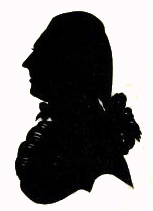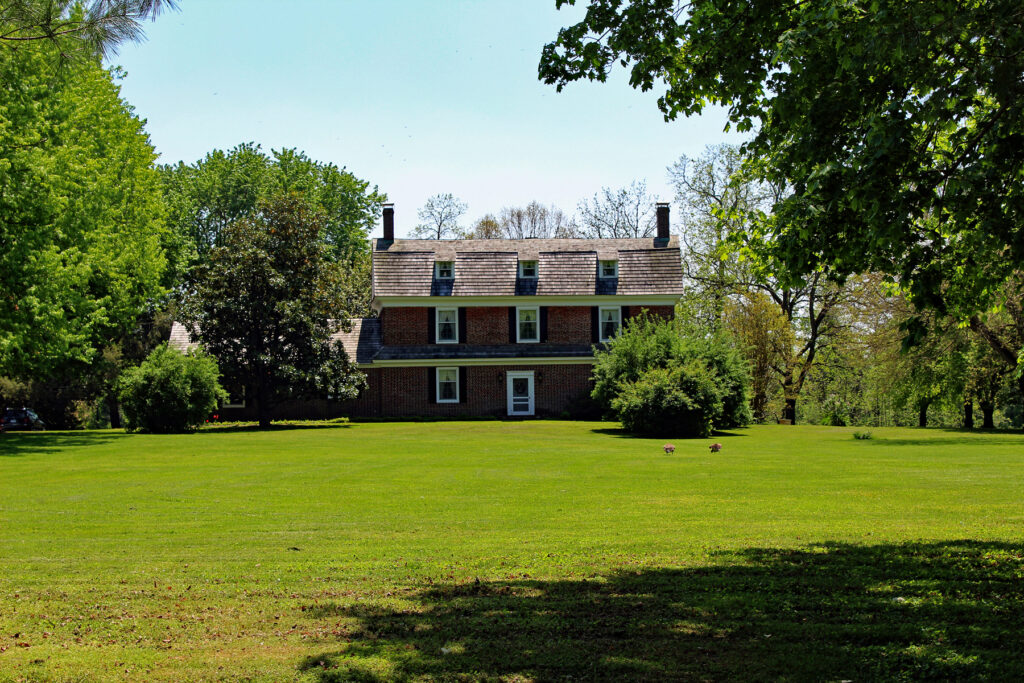Jurist, Delegate, Soldier, Planter

Benjamin Rumsey was born on the 6th of October, 1734 to William and Sabina (Blaidenburgh) Rumsey at Earleville, Cecil County, Maryland. William was a prominent and wealthy landowner. The Rumsey religious affiliation was Episcopal.
After attending Princeton, he read law and was admitted to the bar. He was an attorney by trade and built a stellar reputation throughout Maryland and the surrounding colonies and after the American Revolution in the new United States.
He married Mary Hall, born 21 May 1740, on 24 May 1768 in Cecil County, Maryland. Their children were Benjamin, Jr., John, and Hannah. Mary was the daughter of John and Hannah (Matthews) Hall of Baltimore County, Maryland. Hannah was first married to Ashael Maxwell, son of Col. James Maxwell, owner of the home which eventually became Rumsey Mansion. Ashael died in 1729 leaving his entire estate to his wife Hannah. Hannah then married a man named Abraham Johns soon after Ashael’s death. Widowed a second time in 1731, she married John Hall in 1734. Rumsey would acquire the land and home from Hannah and expand it to the mansion as it is seen today.
As the Port of Joppa fell into obscurity due to a silting harbor and the rise of Baltimore Town, Rumsey would eventually buy out all of the remaining lots in town, restoring the original lands that were previously known as “Taylor’s Choice” prior to the founding of Joppa.

Rumsey was a signer of the Declaration of the Association of the Freemen of Maryland. He would also be asked, and accepted, a position as a representative for Maryland to the 2nd Continental Congress in 1776 in Philadelphia, Pennsylvania, serving for two years.
He was first a Captain, Company 6, Harford County Militia; enrolled 16 September, 1775. Elected Colonel of the Lower Battalion, Harford County Militia, 6 January, 1776. He would serve with his brothers Charles and John and his cousin James Rumsey.
His cousin, James Rumsey (1742-1794), invented the water-tube boiler, the first steam-powered, jet-propelled boat. He successfully sailed his steamboat on the Potomac River at Shepherdstown, West Virginia in 1787, 20 years before Robert Fulton of Pennsylvania, who is commonly and mistakenly described as the inventor of the steamboat.
He was the first and longest serving Chief Judge of the Maryland Court of Appeals, 1778-1806 (28 Years); a record that still stands today.
He was also a vestryman at St John’s Church, Joppa.
Benjamin Rumsey died on the 7th of March, 1808 at his home, the Rumsey mansion. He was buried in the Old St. John’s cemetery along with other family members in Joppa.
The mansion we see today was not the same home built by Col. James Maxwell. The original building is believed to have only been one story and contained just the center section. Benjamin Rumsey would expand it after acquiring it from his mother-in-law; most likely purchasing it outright from her soon after his marriage to Mary. It has been stated in many works over the years that the bricks to build the mansion were imported from England, though not for which phase of construction. The majority of colonial era architectural experts and historians do not subscribe to this belief. Though Col. Maxwell was somewhat well off, there were plenty of local sources for bricks at the time and the logistics of getting imported bricks to this area in 1720 would have been difficult at best. Benjamin Rumsey would most likely have looked to the crumbling buildings of Joppa or local brick makers for his materials. It remains a mystery.

